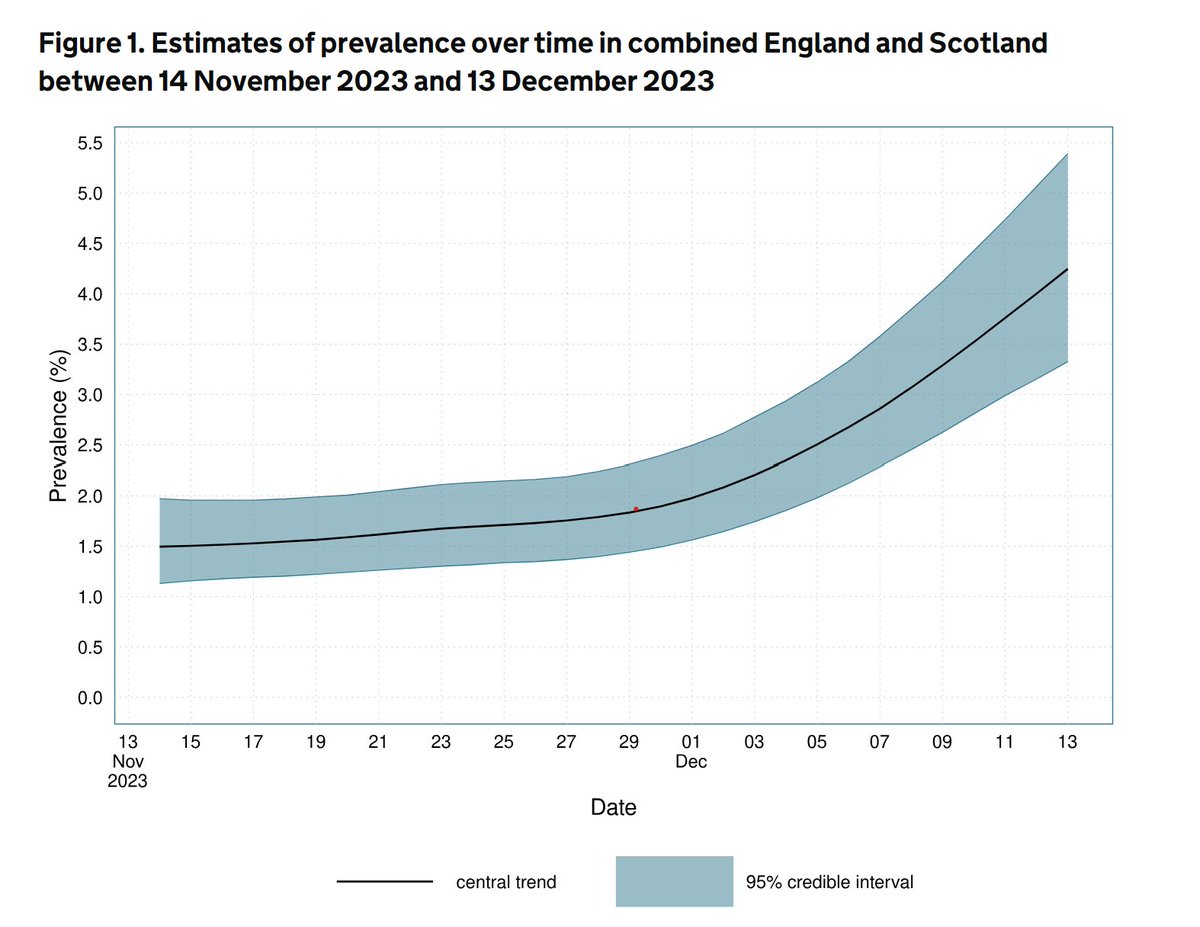It's not been a good day I'm afraid.
We've had the new PHE data that suggests that if you get the Delta variant you're 2 1/2 x more likely to be hospitalised (on top of known increased transmissibility and vaccine escape after 1 dose). It's now the dominant variant too.
1/
We've had the new PHE data that suggests that if you get the Delta variant you're 2 1/2 x more likely to be hospitalised (on top of known increased transmissibility and vaccine escape after 1 dose). It's now the dominant variant too.
1/

Today's reported cases are c50% up on a week ago, and the trend by specimen date is clearly one of an accelerating increase. And this is before we have any further relaxation of restrictions at the solstice.
2/
2/

Much of the increase is in younger age groups, with increasing numbers of outbreaks in schools, nearly doubled in the latest week. But these infections will filter through to older groups, especially given increased transmissibility. At least it's half term this week.
3/
3/

After a few days when things appeared to be stabilising following some initial signs of increasing hospital admissions in England , there's been a jump today, breaking through the 100 barrier - the first time since April 27th.
4/
4/

Finally, the BH seems to have its usual effect of depressing vaccinations for a full week, with the latest 7D total down 15% on a week ago - just when we need a push to get as full coverage as possible before June 21st.
5/
5/

Those most likely to be seriously impacted by this increase are older people who have, for whatever reason, been reluctant to have the jab, and are most vulnerable if they get it. We all need to redouble our efforts to encourage them to get the jab.
6/
6/
Ending on a positive note, it's heartening to see the appetite amongst the younger groups to get the vaccine, despite what we might sometimes see on here. Let's also do all we can to get a high take-up in the under 30s too, both for their benefit and the greater good of all.
7/7
7/7
• • •
Missing some Tweet in this thread? You can try to
force a refresh












